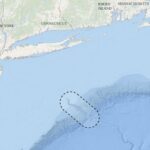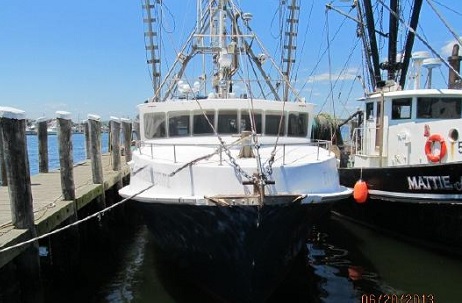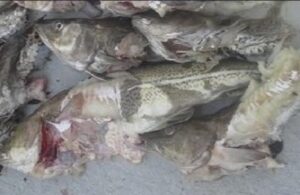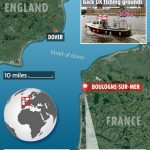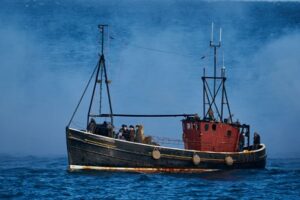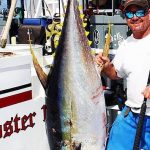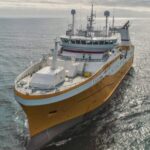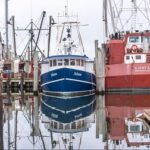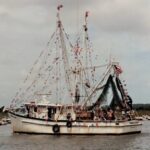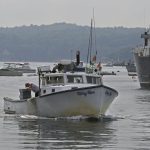FISH-NL applauds Grand Bank for standing up to FFAW-Unifor
 FOR IMMEDIATE RELEASE Wednesday, Nov. 1st, 2017
FOR IMMEDIATE RELEASE Wednesday, Nov. 1st, 2017
The Federation of Independent Sea Harvesters of Newfoundland and Labrador (FISH-NL) applauds Grand Bank Mayor Rex Matthews for calling out the FFAW-Unifor for being an “arm of the federal government.”
“It’s nice to hear someone other than FISH-NL say the FFAW-Unifor is in Ottawa’s pocket,” said Ryan Cleary, President of FISH-NL.
“The FFAW-Unifor hasn’t said a word against Ottawa’s plan to expropriate a huge chunk of the Arctic surf clam quota — which fuels the Grand Bank plant — the same way the union didn’t open its mouth when the feds gave away a piece of the future redfish quota in the Gulf of St. Lawrence.”
“What more proof do people need that the union is no longer the voice of the fishing industry so much as Ottawa’s lackey?”
In early September, federal Fisheries Minister Dominic LeBlanc announced that a fourth licence for Arctic surf clams — harvested on the Grand Banks and off Nova Scotia — will be added to the 2018 fishery.
Twenty-five per cent of the existing 38,000-tonne quota will go to the new entrant. Nova Scotia-based Clearwater currently holds the other three Arctic surf clam licences, utilizing the Grand Bank plant as its primary processing facility.
LeBlanc has stipulated that the new entrant must be majority Canadian owned, and an Indigenous group in the Atlantic provinces or Quebec, despite the fact they have no connection to the resource. The deadline for written proposals is today.
Watering down the surf clam quota is expected to negatively impact work at the Grand Bank plant. FISH-NL has also said that under the principle of adjacency priority access to all shellfish resources off the province’s shores must be given to inshore harvesters.
In July, LeBlanc announced that first access to a growing redfish resource in the Gulf of St. Lawrence will be given to the Qalipu First Nation (and harvested and processed by the Barry Group), despite the fact inshore harvesters on the Great Northern Peninsula have suffered devastating cuts to shrimp and crab quotas, and are starving for fish.
Matthews told NTV Tuesday it’s unprecedented for the federal government to “expropriate” a province’s natural resource, and give it to an Indigenous group in the name of reconciliation. He said there hasn’t been a murmur of opposition from the province’s Liberal MPs, although Matthews saved his strongest condemnation for the FFAW-Unifor.
“The FFAW, including their local here in Grand Bank, they’ve lost their voice. They’re lost their way, and instead of advocating for fish harvesters and seafood production workers they’re more interested in being an arm of the federal government,” said Matthews.
FISH-NL has said for months that the FFAW-Unifor has lost its way, a charge supported by the fact the union collects millions of dollars more in fees and government revenue a year than from union dues.
In 2017 alone, FISH-NL estimates the FFAW-Unifor will collect $8.1 million in fees from inshore harvesters for services such as dockside monitoring and grading, as well as from various government contracts/grants. That compares to annual membership dues of less than half that amount.
Last week the FFAW-Unifor and 11 fish processing companies proposed a cod management plan to the federal government that includes retraining inshore harvesters how to better handle codfish. The money is expected to come from the federal government’s Atlantic Fisheries Fund.
The FFAW-Unifor also failed to take the federal Liberal government to task recently for proposed tax changes that would have hurt inshore harvesters when they sell out in terms of limiting access to the lifetime capital gains exemption.
The Prime Minister has since backed off on that proposal.
In September, FISH-NL called upon the union to release a full statement of all income for the latest year to ensure transparency and accountability to its members. The union ignored the request.
Contact: Ryan Cleary 682 4862

































